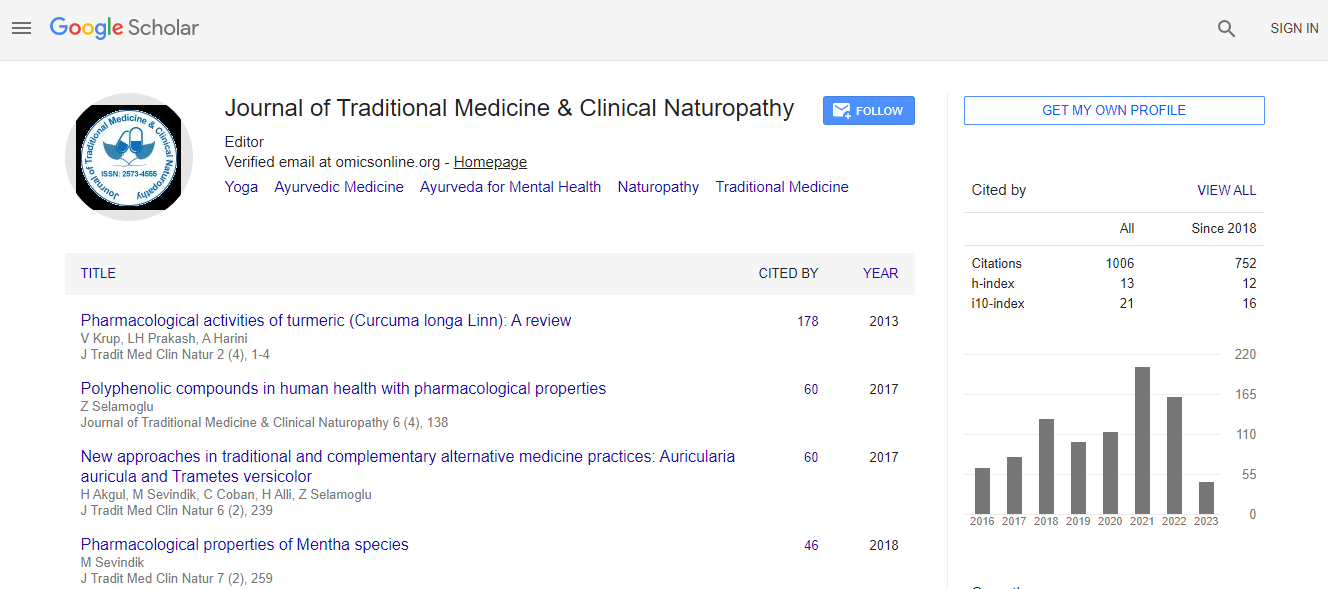Our Group organises 3000+ Global Events every year across USA, Europe & Asia with support from 1000 more scientific Societies and Publishes 700+ ¤Öêüë½ Journals which contains over 50000 eminent personalities, reputed scientists as editorial board members.
¤Öêüë½ Journals gaining more Readers and Citations
700 Journals and 15,000,000 Readers Each Journal is getting 25,000+ Readers
Citations : 1504
Indexed In
- CAS Source Index (CASSI)
- Google Scholar
- Sherpa Romeo
- Open J Gate
- Genamics JournalSeek
- RefSeek
- Directory of Research Journal Indexing (DRJI)
- Hamdard University
- EBSCO A-Z
- Publons
- Geneva Foundation for Medical Education and Research
- Euro Pub
- ICMJE
Useful Links
Recommended Journals
Related Subjects
Share This Page
Dysautonomia relief by acupressure
6th International Conference and Exhibition on Traditional & Alternative Medicine
Jung-Nien Lai
China Medical University, Taiwan
ScientificTracks Abstracts: J Tradi Med Clin Natur
DOI:
Abstract
Background: ûÂô?ô?DysautonomiaûÂô?ô or ûÂô?ô?autonomic dysfunctionûÂô?ô occurs when there is abnormal functioning in nerves controlling many everyday body activities. Some of the functions regulated by the autonomic nervous system are control of heart rate, blood pressure, digestion, and bladder function, bowel function, sweating, and even breathing. These are unconscious vital functions important to the body. The autonomic nervous system modulates numerous body functions, and therefore, dysfunction of this system can manifest with numerous abnormalities. Sometimes it affects only one part, or many areas of autonomic function. Worthy of note, there is still no cure for this illness condition. The present study shows that acupuncture might be a potentially viable choice for treating dysautonomia. Methods: A prospective, nonrandomized study was conducted in women with dysautonomia. All patients received acupuncture based on Bian Zheng Lun Zhi theory. Results: Of the initial 30 intent-to-treat participants, the women with dysautonomia reported significant alleviation of palpitation, abdominal discomfort, and insomnia after acupuncture treatment. Conclusion: Acupuncture based on syndrome differentiation theory might be a potentially viable choice for treating dysautonomia.Biography
Jung-Nien Lai has completed his PhD in 2006 from National Taiwan University and Post-doctoral studies from China Medical University. He is the Professor of China Medical University. He has published more than 35 papers in SCI in the field of Integrated Medicine between Western and Traditional Chinese Medicine (TCM), especially the issues of drug-herb interaction and TCM safety and women health care under TCM and acupuncture treatments.
Email: ericlai111@gmail.com

